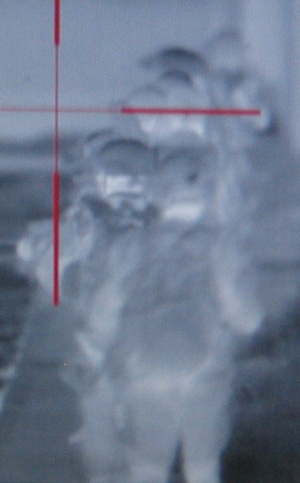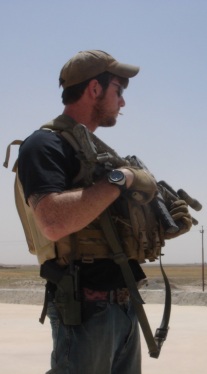Watch myself with Brandon Webb on Democracy Now!
Tag Archives: covert operations
NEWS: Benghazi Ebook featured on the Daily Mail, Drudge, NY Post
EXCLUSIVE: David Petraeus was brought down after betrayal by vengeful CIA agents and his own bodyguards who made sure his affair was exposed, claims new book
- Brandon Webb, a former Navy SEAL, and Jack Murphy, a former Green Beret, reveal the new claims in their book ‘Benghazi: The Definitive Report’
- Petraeus was humiliated after a ‘palace coup’ by high-level intelligence officers who did not like the way he was running the CIA, authors say
- The book also claims that Petraeus and Ambassador Chris Stevens were caught off guard by Benghazi consulate attack because they weren’t briefed about on-going U.S. military operations in Libya
- Webb and Murphy say Benghazi attack was a retaliation for secret raids authorized by Obama security adviser John Brennan
Filed under Uncategorized
Coming Soon: Benghazi E-Book by Jack Murphy and Brandon Webb
Coming in early February is my non-fiction ebook which I co-wrote with Brandon Webb. If you’ve been wondering why I haven’t been posting on SOFREP as much as usual, it is because of this project. I spent months on this ebook. I sifted through the stacks in the basements of Columbia, read through diplomatic cables that came out via Wikileaks, combed through white papers, and went back and researched relevant books to get the most complete picture on Benghazi and Libya. Beyond that, I consulted with numerous sources on Benghazi who helped flesh out the big picture and what really happened that day.
It was a long, uphill battle in which many of my own assumptions about the attack on the US Consulate and the death of four Americans was called into question. One of the deceased was in fact best friends with Brandon Webb and an acquaintance of mine. For this reason alone, we felt compelled to get the most complete story. Yes, the media lied to you, but maybe not in the ways that you think.
Brandon and I are both proud of this book and will be doing some press for it upon release. Because this book questions assumptions and even includes on the ground accounts of what happened that night there will be a lot of controversy. I know what kind of heat is coming. When people have been caught up in a scam their natural reaction when that scam is revealed is to withdraw even deeper into the fraud. It is a protective measure, no one wants to admit that they were wrong.
As I wrote in the prologue of the book, let the chips fall where they may.
Italy’s Transition to Democracy
Here is one of the paper’s I wrote for a political science class that (maybe) you will enjoy. It details Italy’s transition to democracy in the aftermath of WWII, including the use of covert action.
Italy last democratized in the aftermath of World War Two, this process taking place from 1943 to 1948. The reasons for Italy’s transition from a fascist government that approached a dictatorship to a democracy are varied. The causes for democratization include the failure of fascism as a form of government and the larger context of Italy’s failure in the Second World War, the formation of coalitions among institutions and establishments that pre-dated fascism, and later, this democracy was held together by the specter of the Soviet menace during the years of the Cold War.
Samuel P. Huntington defines modern democracy as a government in which, “its most powerful collective decision makers are selected through fair, honest, and periodic elections in which candidates freely compete for votes and in which virtually the entire adult population is eligible to vote” (Huntington). This is the definition used when democracy is referred to throughout this paper.
The first reason for the democratization of Italy was the failure of fascism in Italian politics. As noted by scholars such as O’Donnell and Schmitter, authoritarian governments are often brought down do to their direct military defeats in times of war. This is especially true in cases in which an authoritarian regime is defeated at the hands of a democratic government. This democratic state, acting as an occupying force, now exerts greater than normal influence on the former authoritarian regime. This was very much the case as the Allied powers directly helped shape the Italian political landscape in the post war years, as well as set the conditions for debate amongst various Italian political factions (O’Donnell). The defeat of Mussolini’s fascist government directly opened the door for a new and more legitimate form of governance.
Another aspect of military defeat was the notion that Italy’s then fascist regime had failed Italy so badly that both the working class and the elites were primed for a change in government. Mussolini had engaged in military adventurism in Ethiopia and Albania, later joining forces with Nazi Germany. Declaring war on the Allied powers and sending troops to Northern Africa, the Italians were struck down as their military was ill equipped for fighting trained and determined soldiers (Hansen). Failure was repeated in Greece when Mussolini’s megalomania overwhelmed the legitimate strategic concerns of military planners. Most Italians, including the Generals, had primary loyalties that did not lay with the fascist government. For this reason, Italian Officers were not particularly aggressive on the battlefield. When the Allies invaded Sicily in 1943, the situation they were met with was a far cry from the onslaught they experienced at Normandy. The Italian forces hardly even put up a token resistance. In many cases, Italian soldiers helped the Allies rather than fight them feeling that they were fighting a war that they never wanted (Hansen). Fascism essentially lost all political capital, having expended it on a senseless and unpopular war.
A secondary concern regarding military defeat in World War Two, was the presence of pre-existing institutions within Italy that had preceded fascism. Unlike the American invasion of Iraq in 2003 which toppled the government and left Iraq with no institutions to replace the Baath Party, these institutions in post-WWII Italy were able to seize the initiative and begin to build a coalition government. These players included the military, which was more loyal to the Royal House of Savoy than to the fascists, and the Vatican (O’Donnell). While the Vatican never took a strong anti-fascist position during the war, both the church and the military were centers of power that existed before fascism and were allowed to exist, and participate, as the government transitioned to democracy. The monarchy of Emmanuel Victor and the worker’s struggles taking place in Italy’s industrial base to the north were also political players that influenced actions at the negotiation table.
Civil society was also able to play a large role in the formation of Italy’s new constitution which was enacted in 1948. Just over 400 fascist government officials were dismissed but as the Fascist Grand Council had in the end turned on Mussolini and disposed him, most were allowed to stay and eventually join other political parties. Municipal elections were held, followed by national elections. One outcome was the disbanding of the monarchy by a popular vote of 54%. In the background, the Allied powers had a heavy hand in bringing the Christian Democrats, Socialists, and Communists to the table, providing a buffer force in these negotiations (O’Donnell). The ability of Italy to form coalitions such as this and draft pacts that protected individuals and institutions was perhaps the second largest driving force behind democratization in Italy during the post-war years.
A third, and largely unknown, factor in the ability of Italy to hold together as a democracy was the presence of covert action in the context of the Cold War. There was a major shift to the left in Europe during the aftermath of World War Two and Italy was no exception. The communists had a powerful movement within the country the preceded liberation. It was only through some exceptional political maneuvering that the communists were recruited into the resistance and liberation movement, some of the communists hoping that the Allies would have a continued cooperation with the USSR after the war concluded (O’Donnell). During the municipal elections, the communists did better than previously expected by the Allies causing great concern for the future of democracy in Italy.
As the Cold War continued to polarize Italy, the Christian Democrats worked directly with America while the Communists worked directly with the USSR, at least until a schism between the two several decades later. While the communists were kicked out of the formal government in 1947, they maintained a powerful underground. While covert action, in terms of OSS destabilization campaigns, can be seen as a periphery cause of democracy, the covert actions of NATO can also be seen as a major reason why Italy became, and remained, a democracy instead of falling to the communist menace. These covert actions fell under the umbrella of Operation Gladio which induced strategic social tension in Italian political life by using CIA-sponsored acts of terror under the guise of “Red Terrorism” to create a political backlash against communism (Willan).
Historical analysis and comparative methods show that Italy democratized for numerous reasons including defeat in World War Two, the failure of fascism as a political system, the existence of institutions with a cultural and historical foundation that held power outside of fascism, the ability of these groups to form coalitions under Allied supervision, with covert action having a background stabilizing effect that kept Italy looking West towards London and Washington rather than East towards Moscow.
Source Citations:
Hansen, Eric G. “The Italian Military Enigma.” http://www.globalsecurity.org/military/library/report/1988/HEG.htm Command and Staff College. 23 February 2012. Web.
Huntington, Samuel P. “The Third Wave: Democratization in the Late Twentieth Century.” University of Oklahoma Press, 1993. Print.
O’Donnell, Guillermo, Philippe C. Schmitter, and Laurence Whitehead. Transitions for Authoritarian Rule, Volume One, Southern Europe. The Johns Hopkins University Press, 1986. Print.
Willan, Philip. The Puppet Masters. Author’s Choice Press, 2002. Print.
Filed under Uncategorized
Book Review: The Maverick Experiment
This novel details what is essentially a pilot program run by select members of the CIA. The first Maverick Team is composed of former Special Forces operatives led by a intelligence contractor, Derek, who worked tactical intelligence for Tier-One Special Operations units, giving him the boots on the ground experience needed to lead such a team.
Derek’s team is under the radar and off the books, funded by the black budget and outfitted to be completely deniable. The author’s background in intelligence gathering brings a large degree of authenticity to this work. Having served eight years in Army Special Operations myself I didn’t find any goof ups or gaffes that lesser writers often fall into.
That said, I would question the tactical validity of some of the actions taken by the Maverick Team. For instance, why infiltrate via HALO into Pakistan’s lawless tribal area when the team’s primary Area of Operations is in Afghanistan? There are plenty of drop zones in Afghanistan, and one would need to be established near by for resupply anyhow.
I suppose this is where I have some mixed feelings about The Maverick Experiment. As a novel, I give it five-stars, no questions asked. As a non-fiction field guide I would disagree with much of it. I only mention this because we live in an era where our political leaders quote Jason Borne and Jack Bauer as if they are real people. There is no indication that the author has a similar disconnect between fiction and reality, but I would hate to see people read this book and think that this sort of thing is actually a good idea.
While off-the-books covert action teams are needed, and I completely agree with the author’s assessment that risk aversion is destroying our defense capability, the Maverick Team has an absolute license to kill and maim anyone in their way, to including innocent civilians. As a soldier I was often upset with political correctness, however, I never saw the rules against murder to be prohibitive to us accomplishing our job. There is a lot of middle ground between say, the Rules of Engagement levied on Europeans fighting in Afghanistan, and the kind of “weapons hot” attitude of the Maverick Team.
But as stated above, as a work of fiction, The Maverick Experiment stands out in this genre. The action is authentic and original, including assassinations and a pretty cool jail break from an Afghani prison. The characters could have been a little more fleshed out, but I think that this book is intended to be the first in a series, so perhaps we will learn more about them in the sequel.
If you are looking for a Special Operations or espionage thriller that is a cut above the rest. I’d recommend this work to people who are looking for something with a harder edge. The Maverick Experiment is gritty, hardcore, and brutal. Not for the feeble or weak hearted as they say.
Filed under Action Adventure, Afghanistan, Reviews
American Drug Lords
This short documentary I found today to my surprise is about many of the issues addressed in “Reflexive Fire” namely international drug smuggling under the auspices of western governments. I was somewhat familiar with Daniel Hopsicker’s work but had no idea he had produced this short film that so closely mirrors the subject matter of my novel in progress. I would say that this video makes a good trailer for my book but to tell the truth that really does not do Daniel’s research justice, this is real life and as usual is it much, much stranger then fiction.
Filed under News












